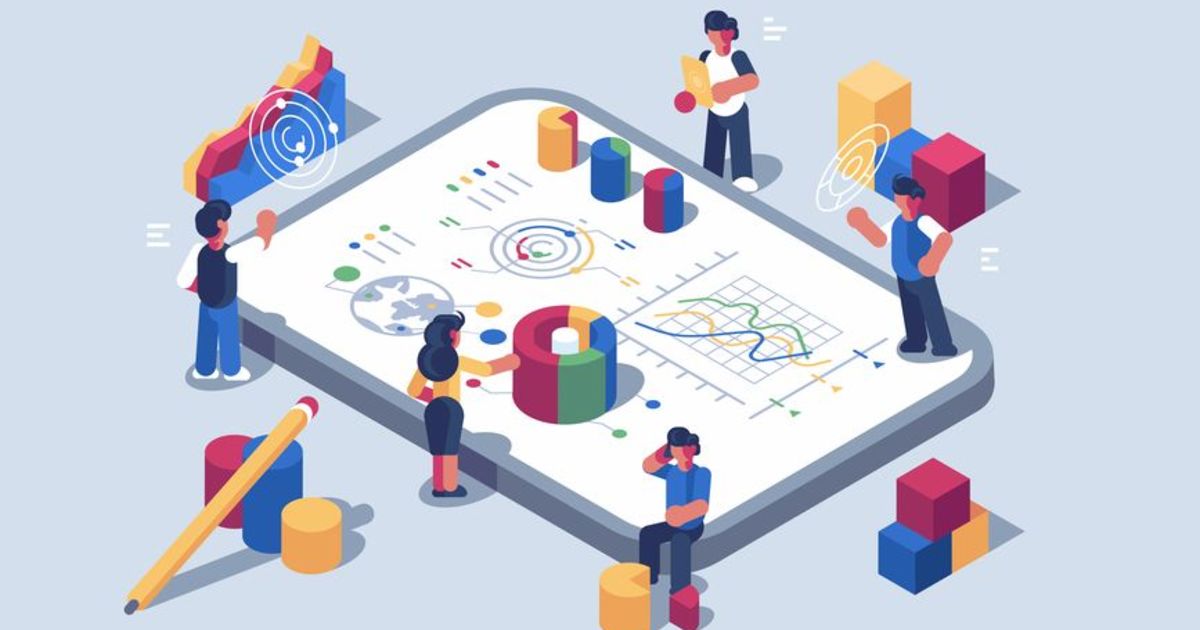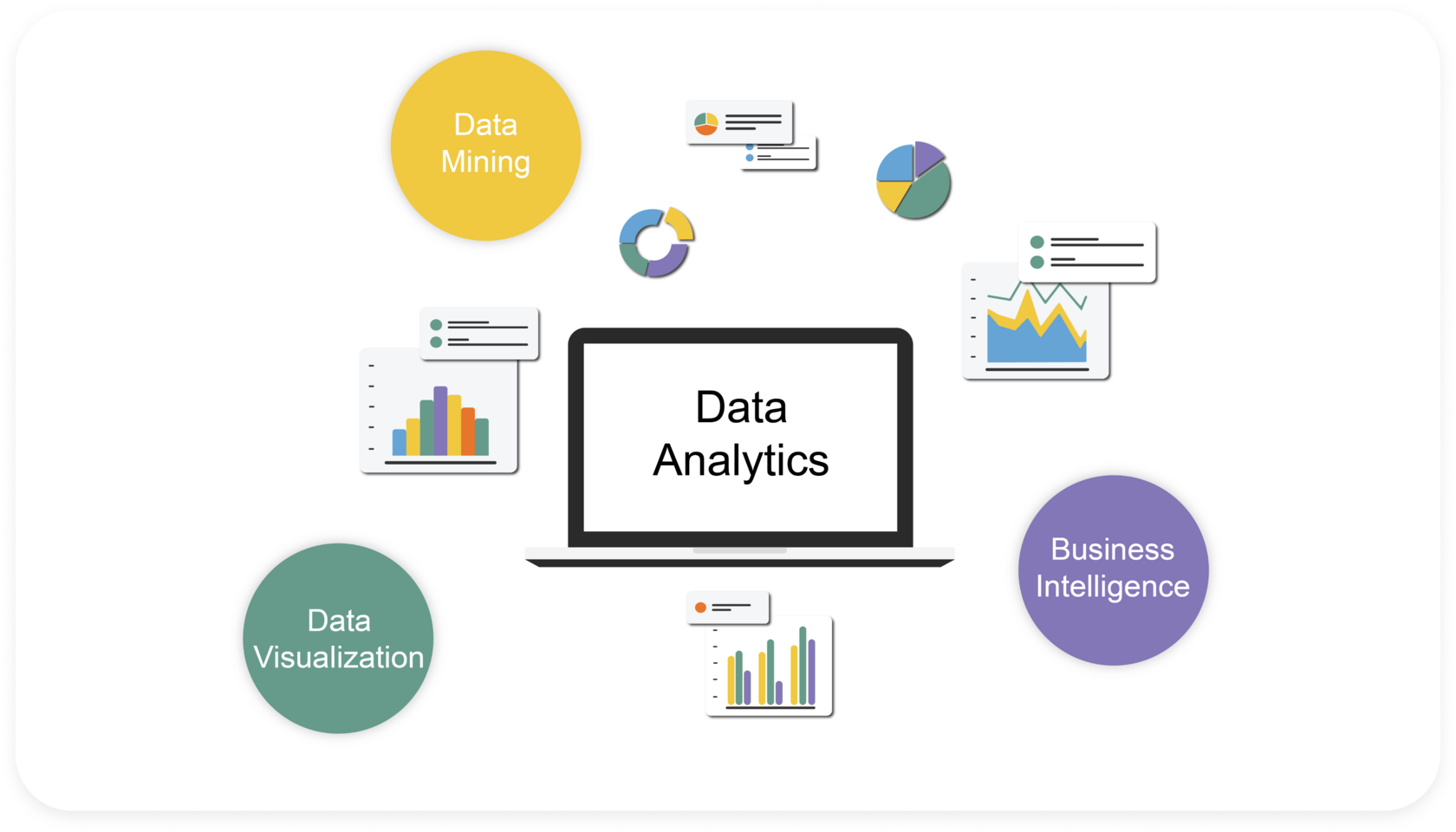Take Full Advantage Of Performance Using Real-Time Analytics Platforms
Take Full Advantage Of Performance Using Real-Time Analytics Platforms
Blog Article
Make The Most Of Development: Exactly How Analytics Drive Better Methods
In today's data-driven landscape, companies progressively recognize the essential function of analytics fit efficient growth approaches. By taking advantage of information understandings, businesses can improve their operational strategies, prepare for market modifications, and enhance customer engagement. Nonetheless, the difficulty lies not only in collecting information yet in effectively analyzing it to drive concrete end results. As we discover the key benefits and approaches related to analytics, an essential concern emerges: how can companies guarantee they are leveraging these insights to open their full potential? The answer might redefine the future of critical planning.
Comprehending Data Analytics
Data analytics is a methodical computational analysis of information that enables companies to discover meaningful patterns and understandings. This procedure incorporates a range of strategies, including analytical analysis, anticipating modeling, and information mining, which jointly aim to change raw information into actionable details - Analytics. By utilizing these approaches, companies can make educated choices that are rooted in empirical proof as opposed to intuition alone
The structure of information analytics depends on its capacity to take care of vast quantities of information from varied sources. This consists of structured information, such as databases, and disorganized information, including social media communications and client feedback. With making use of specialized software program and tools, experts can remove and refine this data successfully, determining patterns and relationships that might not be quickly apparent.
Comprehending data analytics likewise involves acknowledging the value of data high quality and integrity. Exact and reputable data is essential for meaningful evaluation; hence, companies have to execute durable data governance practices. In addition, the repetitive nature of analytics permits continuous refinement and improvement of approaches, making sure that organizations remain nimble when faced with altering market dynamics and consumer habits.
Key Advantages of Analytics

Among the vital benefits of analytics is its capability to offer actionable understandings. Organizations can quickly assess large quantities of information, discovering patterns that may not be promptly evident. This aids in preparing for market changes and adapting strategies appropriately. Additionally, analytics fosters a culture of evidence-based decision-making, decreasing reliance on instinct and guesswork.
An additional considerable benefit is enhanced customer understanding. Analytics tools enable services to segment their target market, track customer actions, and personalize advertising and marketing efforts. This targeted approach not only boosts customer engagement but additionally drives greater conversion prices.

Implementing Analytics Methods
To completely understand the advantages of analytics, organizations have to adopt organized techniques for application. This begins with plainly defining purposes that straighten with more comprehensive business objectives. By developing certain, measurable results, organizations can focus their analytics initiatives on locations that yield the greatest roi.
Next, organizations should focus on data administration to ensure the stability and security of the information being analyzed. This entails establishing procedures for information collection, storage, and access while sticking to pertinent policies. Guaranteeing top quality data is critical for generating purposeful understandings.
Furthermore, fostering a culture of data-driven decision-making is important. This requires training staff members to interpret analytics findings and encouraging cooperation throughout divisions. They are a lot more most likely to integrate understandings into their day-to-day procedures. when groups recognize the worth of analytics.
Last but not least, organizations need to consistently evaluate and refine their analytics strategies. The landscape of information and technology is continuously evolving, and remaining versatile will allow organizations to take advantage of new devices and methods efficiently. By applying these organized techniques, organizations can optimize the influence of their analytics initiatives and drive lasting growth.
Tools for Reliable Evaluation
Efficient analysis depends on a selection of devices that help with the removal of insights from data - Analytics. These devices can vary from easy spread sheet applications to sophisticated machine discovering systems, each serving a special purpose in the analytical procedure
Data visualization software, such as Tableau and Power BI, plays a critical role in transforming intricate datasets right into easy to understand graphical representations. These tools make it possible for experts to identify trends and patterns promptly, enabling even more educated decision-making.
Statistical analysis software program, like R and SAS, supplies innovative capacities for performing extensive analyses, consisting of regression, hypothesis screening, and anticipating modeling - Analytics. These attributes encourage organizations to attract significant conclusions from their data, recognizing possible possibilities and threats
Additionally, data source monitoring systems such as SQL and NoSQL data sources supply the needed framework for storing and inquiring big volumes of information efficiently. They make certain that information is organized and available for analysis.
Last but not least, company intelligence systems integrate various information sources, offering an extensive view of organizational performance. By using these tools successfully, services can enhance their logical abilities, enabling them to create approaches that take full advantage of growth and enhance general performance.
Study of Success
Successful companies commonly utilize information analytics to drive impactful techniques, as evidenced by numerous remarkable instance studies. By employing these understandings, Netflix has effectively tailored its content suggestions, resulting in increased user involvement and client retention.

Additionally, Starbucks employs data analytics to identify optimum store locations Extra resources and improve its product offerings. By examining client demographics and purchasing patterns, Starbucks effectively determines high-potential markets and tailors its menu to regional tastes, driving sales and customer loyalty.
These study illustrate that efficient application of data analytics can bring about critical advantages, cultivating technology and development within organizations across numerous sectors.
Conclusion
Finally, the integration of analytics right into organizational approaches significantly boosts decision-making procedures and cultivates sustainable development. By leveraging data-driven understandings, businesses can recognize trends, anticipate market changes, and enhance procedures. The reliable application of analytics tools better sustains dexterity and advancement, allowing organizations to browse affordable landscapes with better accuracy. Ultimately, a commitment to analytics not just drives prompt efficiency renovations yet additionally secures lasting success in an ever-evolving market.
Data analytics is an organized computational analysis of information that enables companies to uncover purposeful patterns and insights.Understanding information analytics additionally entails identifying the importance of information high quality and stability. Accurate and trusted data is crucial for meaningful analysis; thus, companies should execute robust information administration techniques.Following, organizations must prioritize data administration to ensure the honesty and security of the data being examined.Effective organizations commonly leverage information analytics to drive impactful approaches, as confirmed by Read Full Article numerous noteworthy case researches.
Report this page